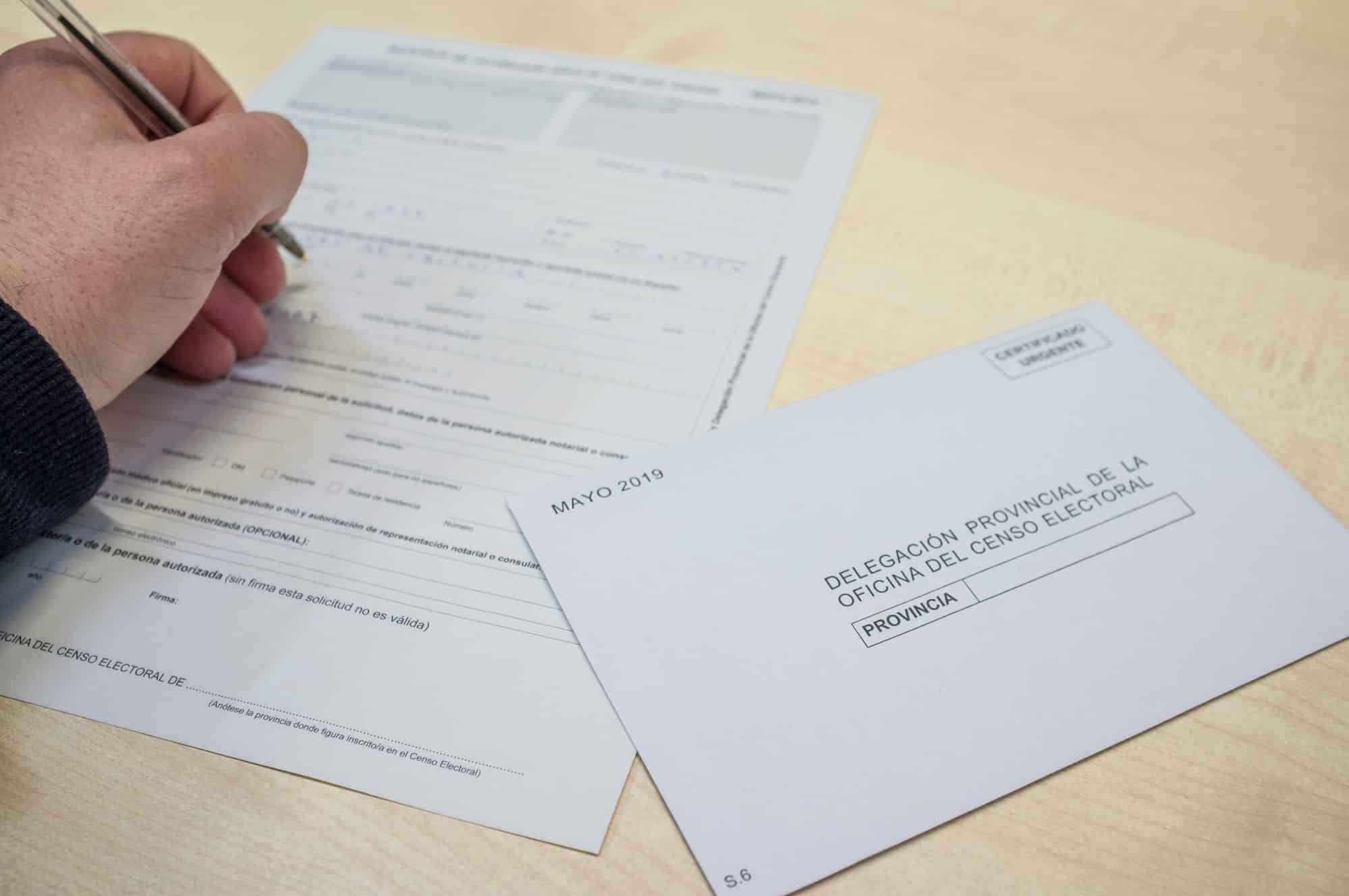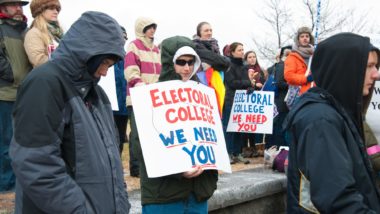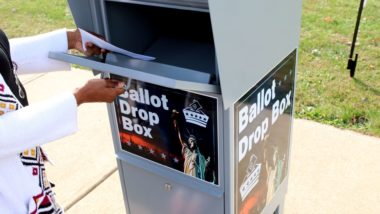
A Georgia lawsuit has been filed by voting organizations claiming that the state did not provide absentee ballot applications in Spanish, as authorized by federal law.
The plaintiffs say the Gwinnett County Board of Registration and Elections (BORE), and Georgia’s Secretary of State Brad Raffensberger, used CARES Act funding to mail out English-only absentee ballot applications to Georgia’s 6.9 million voters to encourage them to vote by mail in Georgia’s upcoming primary due to the public health risk promulgated by the COVID-19 virus.
The lawsuit also states that, since December 2016, Gwinnett County’s limited-English proficient (LEP) citizens are entitled to receive bilingual voting materials as well as assistance.
The plaintiffs say that the county has a substantial population of LEP Spanish speaking individuals who were educated in Puerto Rico and are also entitled to receive bilingual voting materials and assistance.
Raffensberger and the BORE know they are obligated to provide LEP Spanish-speaking voters with translated materials because they sent out “last chance” purge notices to LEPs in the fall of 2019, according to the lawsuit.
Did you receive your ballot application in English-only? Get legal help by clicking here.
The voter rights lawsuit states that these notices gave voters a final warning to confirm or update their address information or have their voting registrations cancelled in December 2019.
The plaintiffs maintain that the Secretary of State mailed an English-only version of the “last chance” purge notices to all voters who reside outside of Gwinnett County while BORE mailed a bilingual version of the document to voters within the county.
However, the defendants “have failed to take any steps to ensure that Gwinnett County’s LEP Spanish speaking voters receive bilingual absentee ballot applications for the upcoming primary election,” the Gwinnett County lawsuit states.
The voting organizations aver that neither of the defendants have a bilingual absentee ballot application visible on the respective websites. Allegedly, there is a poorly translated Spanish version of the absentee ballot application available on the BORE website. The plaintiffs say the only way that LEP Spanish speaking voters can access it is by going to the English-only website.
The voting lawsuit states that the defendants are in violation of the Voting Rights Act by mailing English-only absentee ballot applications to Gwinnett County voters and failing to put up a downloadable and accurately translated bilingual absentee ballot application in a readily accessible portion of its website.
The plaintiffs seek an order from the court which would compel the defendants to mail absentee ballot applications to the Gwinnett County voters who received English-only applications as well as post an accurately translated bilingual application on their websites.
The lawsuit claims that, on March 15, defendant Raffensperger postponed the presidential primary in Georgia from March 24, 2020 to May 19, 2020, which combined the primary with voting for other offices.
On April 9, the Secretary of State postponed the primary election again, from May 19 to June 9, according to the lawsuit.
Because of the coronavirus, the Secretary of State began mailing out English-only absentee ballot applications to all active voters in Gwinnett County and the rest of Georgia during the week of March 30, 2020, the plaintiffs note in their complaint.
Raffensperger also mentioned that LEP Spanish-speaking persons are among the groups who would likely not be able to take advantage of the absentee by mail voting and that they would need to find other ways to vote, including in-person voting, the plaintiffs state.
“However, voting in person risks the health of voters and non-profit groups have ceased in-person get out the vote work in Gwinnett County,” the lawsuit notes.
The voting organizations state that poll workers, many of whom are elderly and vulnerable to COVID-19, are also quitting in very large numbers. This reportedly risks the closure of certain polling places.

The plaintiffs contend that LEP Spanish speaking voters in Gwinnett County are not able to understand the English-only ballot applications that were mailed to their residences.
In addition, the plaintiffs note that some residents do not even know that absentee voting is an available option for them and would have benefited from receiving this information in their native language.
Many LEP voters are reportedly not familiar with the voting by mail process and do not know how to obtain an application if they wanted one.
The plaintiffs are represented by Brian Sells of The Law Offices of Brian Sells.
The Georgia Voting Lawsuit is Georgia Association of Latino Elected Officials, et al. v. Gwinnett County Board of Registration and Elections, et al., Case No. 1:20-cv-01587, in the U.S. District Court for the Northern District of Georgia.
Join a Free Coronavirus Class Action Lawsuit Investigation
If you believe your rights were violated in a way that is directly related to the coronavirus pandemic, you may qualify to join this coronavirus class action lawsuit investigation.
ATTORNEY ADVERTISING
Top Class Actions is a Proud Member of the American Bar Association
LEGAL INFORMATION IS NOT LEGAL ADVICE
Top Class Actions Legal Statement
©2008 – 2026 Top Class Actions® LLC
Various Trademarks held by their respective owners
This website is not intended for viewing or usage by European Union citizens.














